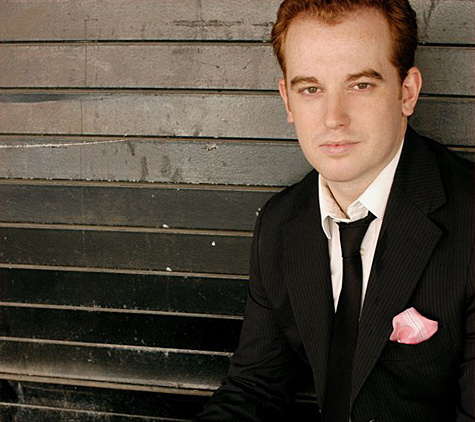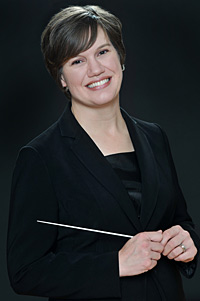
It was to be a joyous occasion.
In the spring of 1940, American composer Randall Thompson was commissioned to write a new a cappella piece for the dedication of the Berkshire Music Center at Tanglewood.
But Thompson, preoccupied with other commissions, only began writing July 1 — a mere week before the opening. And with war sweeping across Europe, he found himself unable to produce the sort of joyous fanfare organizers were expecting.

Instead, Thompson delivered “Alleluia,” a somber, introspective masterpiece that today ranks among the most popular choral works of the 20th century.
On Sunday, April 7, the Department of Music in Arts & Sciences will feature “Alleluia” as part of “American Voices,” the 2013 Chancellor’s Concert.
The performance — which will begin at 3 p.m. in the 560 Music Center’s E. Desmond Lee Concert Hall — is among the university’s largest of the year. It features more than 100 musicians from both the Washington University Symphony Orchestra and the Washington University Choirs.
The 560 Music Center is located at 560 Trinity Ave., at the intersection with Delmar Boulevard.
For more information, call (314) 935-5566 or email daniels@wustl.edu.
Old American Songs
Nicole Aldrich, director of choral activities, leads the WUSTL Choirs. Steve Jarvi, recently appointed resident conductor of the St. Louis Symphony, leads the WUSTL Symphony Orchestra. Sandra Geary is accompanist for the choir.
The program will open with Maurice Peress’ 1965 arrangement of Leonard Bernstein’s “Overture” to West Side Story (1957).
Next up will be “Alleluia,” followed by six selections from Aaron Copland’s Old American Songs. Written as two sets, in 1950 and 1952, these songs draw from rich veins of folk and traditional music.
On the program will be the Shaker melody “Simple Gifts” and “Ching-a-Ring Chaw,” an early minstrel song that Copland rewrote to avoid racist implication. Next will be the sentimental ballad “Long Time Ago” and the playful children’s tune “I Bought a Cat,” followed by the revivalist “Zion’s Walls” and the tender hymn “At the River.”
After intermission, the program will conclude with Symphony No. 2 “Romantic” (1930) by Howard Hanson. A longtime director of the Eastman School of Music, Hanson was an important advocate for new American music. The Second Symphony, his best-known work, was commissioned by Serge Koussevitzky, the music director for the Boston Symphony Orchestra who later would commission Thompson’s “Alleluia.”